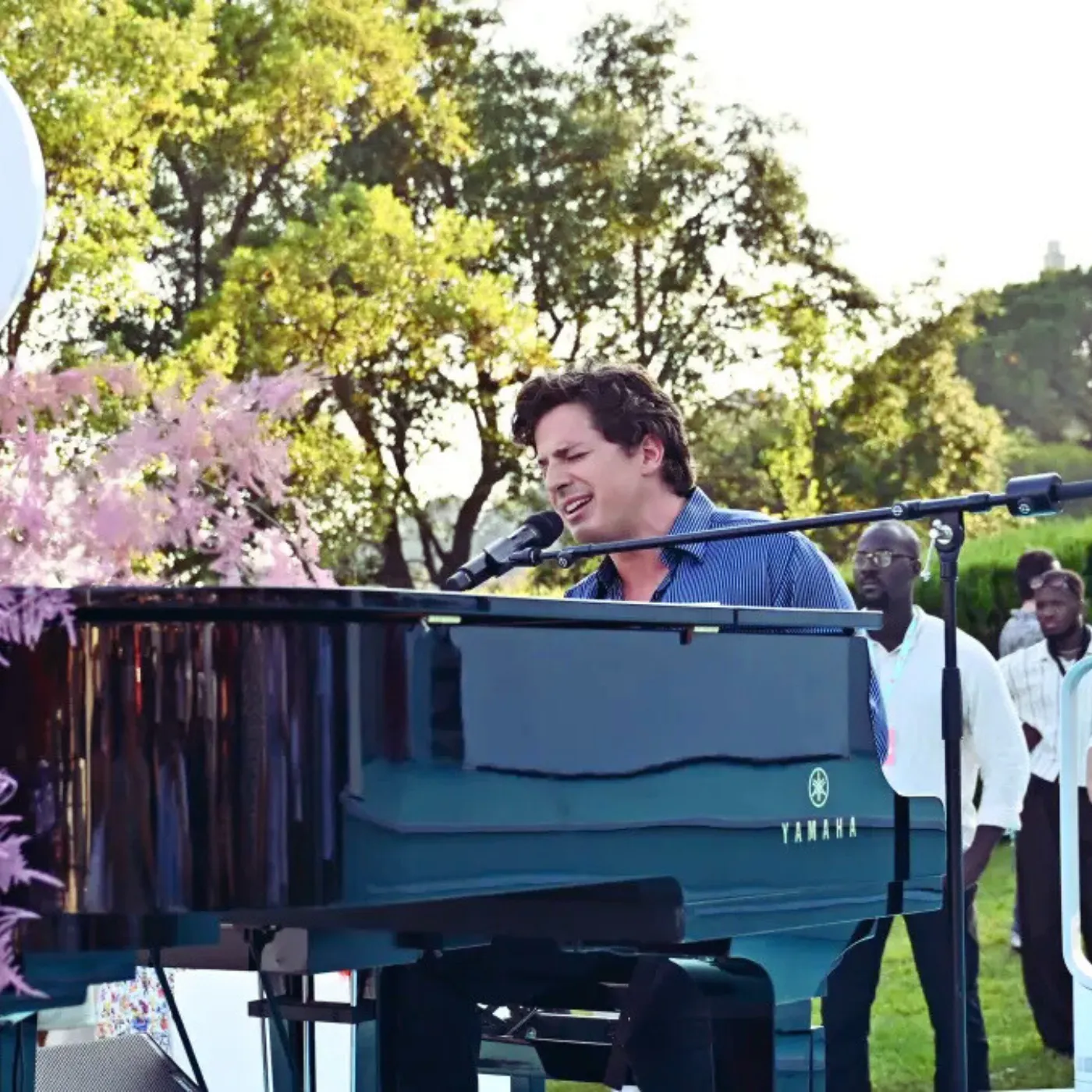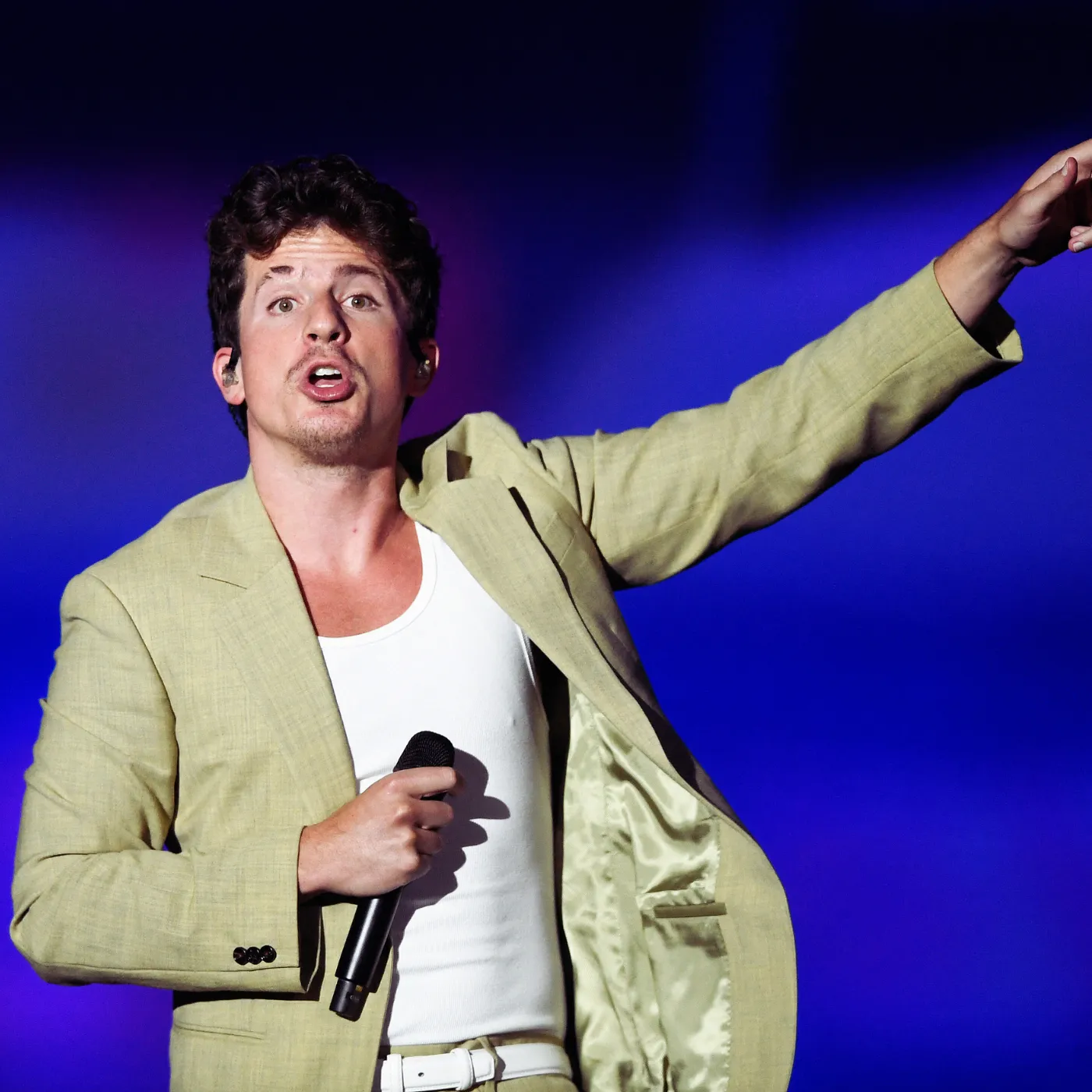

Charlie Puth’s Industry Bombshell Has Fans Rewriting Everything They Thought They Knew
For years, Charlie Puth has been known for his crystal-clear vocals, perfect pitch, and radio-ready pop hits. But this week, the “Attention” singer grabbed headlines for something far more shocking—and it’s not a catchy hook or a chart-topping single. In a bold and brutally honest new interview, Puth peeled back the glossy layers of the music industry, exposing a side of fame that most fans never get to see. And what did he reveal? It’s not just disturbing. It’s downright ugly.

The 32-year-old singer-songwriter didn’t hold back when he described the manipulation, pressure, and toxic culture he claims are deeply embedded in the very system that helped launch his career. With chilling clarity, Puth laid out a narrative of emotional exhaustion, fake relationships, and calculated exploitation—painting a picture of the industry that starkly contrasts the glitzy image often sold to fans on social media.
“Everything is curated. Everything is controlled. And most of it is fake,” Puth said, sending shockwaves through his fandom and beyond.
The interview—which has since gone viral across Facebook, TikTok, and X (formerly Twitter)—ignited a firestorm of speculation, criticism, and praise. Fans are rewatching old clips, dissecting lyrics, and drawing new conclusions about his journey. Industry insiders are scrambling to control the narrative. But the damage has been done: Charlie Puth didn’t just open the door—he kicked it down.
The Industry That Made Him
Charlie Puth rose to fame in the mid-2010s with a YouTube presence that snowballed into mainstream success. His breakthrough single, “See You Again” with Wiz Khalifa, became a global anthem. From there, he released a string of hits—“One Call Away,” “We Don’t Talk Anymore,” “Attention,” “How Long,” and more—solidifying his reputation as one of pop’s most technically skilled artists.
Behind the scenes, however, things weren’t so harmonious. According to Puth, the same machine that projected him to fame was also quietly suffocating his creativity, managing his image, and weaponizing his vulnerabilities.
“There were times I felt like a product, not a person,” he admitted. “I was being told what to wear, what to say, and even what to post.”
This level of micro-control, he explained, wasn’t about artistry—it was about maximizing profit.
Behind the Curtain: A Manufactured Persona
While Puth is known for his clean-cut charm and approachable personality, he says much of that image was carefully engineered by label executives, brand strategists, and digital marketing teams.
“People don’t realize how much is scripted,” Puth revealed. “Even some of the ‘off-the-cuff’ Instagram captions or ‘funny’ interviews were pre-approved or rehearsed.”
This level of manipulation extended to his relationships—both professional and personal. Puth hinted at being pushed into collaborations, friendships, and even rivalries to generate headlines, boost engagement, or build “organic” buzz around a project.
The revelation has sparked massive backlash across fan communities, with thousands commenting on old videos and archived interviews, reinterpreting them through the lens of Puth’s new claims. One viral TikTok, captioned “They really played him like a puppet,” has racked up over 2 million views in just 48 hours.
Labels, Pressure, and Panic Attacks
Perhaps the most harrowing part of Puth’s exposé was his candid description of the mental toll that industry pressure took on him. Though always perceived as the guy with a smile and a keyboard, Puth admitted to struggling with anxiety, sleeplessness, and paranoia—often while being forced to perform or create on impossible deadlines.
“I had panic attacks in hotel rooms before shows. I’d cry in the car after interviews,” he said. “But no one cared, as long as the content kept rolling.”

What makes this confession even more chilling is that Puth isn’t the first to say it. Other artists—from Billie Eilish to Zayn Malik—have echoed similar concerns about the psychological impact of life in the spotlight. But unlike many of his peers, Puth is naming the machine, not just the symptoms.
His comments call into question the role of labels, publicists, and PR handlers, many of whom, according to Puth, were more interested in optics than well-being.
From “Golden Boy” to Whistleblower?
Unsurprisingly, the industry hasn’t responded kindly. Sources close to Puth say he’s already faced “serious backlash” behind closed doors. One executive reportedly warned him to “watch what he says,” while another suggested his remarks could be “career-ending.”
But fans seem to be rallying around him. On Facebook, posts with hashtags like #JusticeForCharlie and #FreePuth have started trending. Comments range from supportive to outraged, with users demanding accountability and transparency.
“It’s insane how these artists are chewed up and spit out,” one user wrote. “Thank you, Charlie, for telling the truth.”
Even some fellow musicians have quietly liked or reshared his remarks, signaling subtle solidarity.
The Price of Speaking Out
So, why now? Why is Charlie Puth speaking out after nearly a decade of playing the game?
According to him, the answer is simple: he’s tired of pretending.
“I don’t want to be famous if it means lying to my fans,” he said. “I’d rather be real and lose everything than be fake and gain the world.”
It’s a bold statement, especially in a business that thrives on illusion. But it might also be the beginning of a new chapter—not just for Puth, but for the industry as a whole.
Some analysts believe that the era of manufactured celebrity is coming to an end. Audiences are getting savvier, and authenticity is becoming the new currency. If that’s true, Puth’s tell-all might not just be a risk—it could be a revolution.
The Fallout Begins
In the days since the interview dropped, there’s been a noticeable shift. Puth’s streams have surged. His engagement has spiked. And public interest in his upcoming projects has skyrocketed.
But it’s not all sunshine. There’s a growing tension between the artist and his label, and rumors are swirling about possible legal pushback or silent blacklisting.
Industry watchdogs are keeping a close eye on how this plays out—and so are fans.
“If they try to cancel him, it’ll prove everything he just said,” one fan commented.
It’s a sentiment that seems to be growing by the hour.
What’s Next for Charlie Puth?
Despite the risk, Puth appears unshaken. He’s hinted at new music—music that he claims is 100% him, free from industry interference. Whether it becomes a commercial success or not remains to be seen, but one thing is clear:
Charlie Puth is no longer playing by their rules.
And in doing so, he’s just redefined what it means to be a pop star in 2025.

Final Word
Love him or hate him, you can’t ignore him. Charlie Puth’s explosive revelations are more than a celebrity meltdown—they’re a mirror held up to a broken system.
And while the industry scrambles to clean up the mess, one thing is certain:
The mask has slipped. The illusion is shattered. The truth is out.
And fans?
They’re not looking away this time.


















